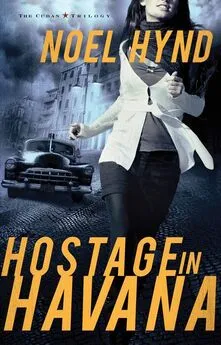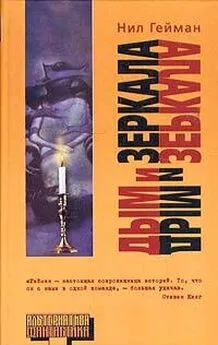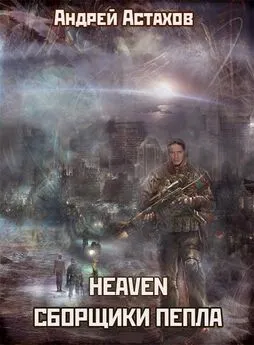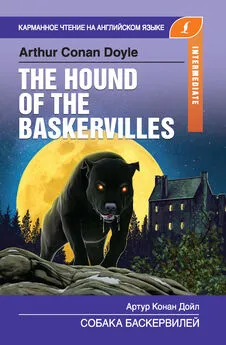Noel Hynd - Hostage in Havana
- Название:Hostage in Havana
- Автор:
- Жанр:
- Издательство:неизвестно
- Год:неизвестен
- ISBN:нет данных
- Рейтинг:
- Избранное:Добавить в избранное
-
Отзывы:
-
Ваша оценка:
Noel Hynd - Hostage in Havana краткое содержание
Hostage in Havana - читать онлайн бесплатно полную версию (весь текст целиком)
Интервал:
Закладка:
She didn’t know an HW, but she would now look out for one. HW was clearly senior enough to add his or her own notes to the file, which meant that HW carried some weight in the CIA.
And since the file was closed to her but not to HW, that told her something too.
Okay, she would double check this herself. Her fingers worked the keyboard. Via secure email, she fired an inquiry to a colleague she had worked with in Madrid. She asked for anything the Madrid office might give her on Roland Violette and his defection. He had worked at the CIA office there in the 1980s, she noted, and the office had been on the top floor of the embassy. So surely Madrid had files. And surely they could share, even if the files didn’t officially exist. Since she wouldn’t have time to read through entire documents, she asked for an overview.
Then, for good measure, she sent the same dispatch to her old friend Gian Antonio Rizzo in Rome. Alex had worked with him on various occasions in the past, including the Madrid assignment. He was a retired municipal policeman who continued to moonlight for the CIA. Rizzo always had his ear to the ground, always had some odd bit of pertinent information. If nothing else, he was always amusing.
If she were lucky – and often she wasn’t – she would be able to compare the three responses. By the time she finished, it was ten minutes to five. She was so deep in thought, searching for implications and inferences, that at first she didn’t hear the three low rings of her cell phone. She stared at it in an unfocused way. It sounded a fourth time before she answered.
“It’s ‘no go’ on Gilberto, beautiful,” Sam purred. “I told you I’d try to call him, since he was my old informant in Havana, but he died seven years ago. His store folded, his son works for the Castro government out in the Sierra Maestra, and another family runs a bodega out of his storefront.”
“So you don’t know anyone else on the island?” she asked.
“Gilberto was my best guy and he’s gone,” he said. “Sorry.”
“But do you hear anything?” she asked. “Unofficial or otherwise?”
Sam shrugged. “Just some low level stuff. The U.S. diplomats are teed off because Cuba gets a free pass on human rights abuses from most of the world’s democracies. Diplomatic visitors from Canada, Australia, and Switzerland never criticize the Castro regime or meet with dissidents while they’re on the island. A friend showed me a confidential diplomatic cable sent to the State Department from Havana. The cable was transmitted in November 2010 and was signed by the top American diplomat in Habanera town. It said there were economic motives behind the suck-up approach. But if so, these countries weren’t getting much in return. The rewards for acquiescing to Cuban sensitivities were laughable: over-pumped dinners and for those who bowed lowest a photo-op with drooling old Fidel or dithering old Raul. Big fat deal, huh? And that’s all I hear, other than the fact that all the Cuban dissidents supported by Washington for decades were old, out of touch and so split petty squabbles that the United States needed to look elsewhere for future leaders. Like Miami, maybe.”
“I appreciate your insights,” she said. She wondered if someone had gotten to Sam in the hours since they’d seen each other. She rejected the notion. Sam was his own man these days.
Then Sam interrupted her thoughts. He said he had also made a few other calls about Paul Guarneri’s father and found an old contact who’d known Joseph Guarneri during the 1961 invasion. The old man had been a good soldier and a stand-up guy to his comrades-in-arms, Sam’s unidentified contact said. And he had been hip deep in a number of anti-Castro endeavors in the late sixties.
“CIA stuff, Sam? Do you think?” Alex asked.
“More than likely,” Sam said. “You can just about take that to the bank.”
“Here’s the funny part, Sam,” Alex said. “I spent two hours going through Joseph Guarneri’s FBI file this afternoon. It mentioned all the racketeering, the family, the contacts, touched on the anti-Castro stuff-but it uttered not a peep about the CIA. The CIA wasn’t even mentioned in Guarneri’s file. What do you think?”
Sam laughed. “Typical. The CIA would never share information with the FBI, and the FBI is too dumb to discover it on their own.”
“Should I make something of the omission?” Alex asked.
“In an FBI file?” Sam said. “No. Forget it. When it comes to the FBI, never attribute to duplicity what can be attributed to laziness, pigheadedness, or stupidity,” Sam said. “They miss the big picture all the time. They probably missed it here.”
“That or they’re keeping a second file they won’t let me see,” she said.
“There’s always that,” Sam said philosophically. “Anything else I can do?”
“Keep my cell number handy if you think of anything else. And I’ll keep yours.”
“God bless,” Sam said, then, “Oh, I remember the other thing I was going to tell you,” he said. “Thought of it right after I got back inside the fortress.”
“What?” She was almost starting to like Sam. Almost.
“A travel tip. Havana has two million people,” he said. “And one million of them are police. So be careful. Don’t get pinched by the Cuban cops. It’ll take you years to get out.” Then he rang off.
TWENTY-EIGHT
At his hotel in Manhattan’s East Fifties, Manuel Perez ran his room card through the slot in the door above the doorknob. The little green light came on. He pushed the door open. His hand was still on the knob when a blackjack smashed across his temple above the right ear. The blow staggered him. A second intruder, crouched behind the door, came from the left with a baseball bat and took out Perez’s knee from the left side. A second harder blow to the lower back dropped him to the floor.
Perez threw his elbows at the men on top of him. He caught one in the center of the face. The room resounded with crashes, thumps, and profanity. Perez clenched a fist, threw a massive backward punch at one of his assailants and caught him in the throat. The man staggered and loosened his grip. But there were five of them, Perez now realized. He was outnumbered and outmuscled. From the blow to his head, blood flowed into his eyes. He could barely see.
Two men started to yank Perez’s hands upward behind his back. One of them shoved a Taser to the base of Perez’s neck and unleashed several seconds of current. He was aware of the numbing pain and the buzzing, zapping sound. His body convulsed. He howled again, then gagged. At the same time, the two men worked his hands upward and handcuffed him.
Perez lay on the hotel carpet, stunned but still not unconscious. Someone grabbed him by the hair, lifted his head, and slammed it down again. He was breathing hard, more blood flowing from his brow. He wondered how he could have walked right into this trap.
He could hear someone unleashing a strand of tape with a ripping sound. From behind, someone wrapped the tape firmly across Perez’s mouth. Then they sat him up on the floor. One of the assailants, a burly man with a gray crew cut, pushed a gun to Perez’s throat, and the Mexican was convinced that he had less than a few seconds to live.
“You’re coming with us, Manuel,” the man said in Spanish. “If you resist, we kill you. If you cooperate, you live to work again. How’s that sound, amigo?”
Perez barely had the stamina to give a nod, but he found enough to do so.
“Get him to his feet,” the leader said.
His legs throbbed where he had been hit, and he stood with great difficulty. Then he heard the hotel door open again. A shaft of light from the hallway burst into the room and into his eyes. Someone dropped a black hood over his head, prisoner-of-war style, and they pulled him out into the hall.
At first he thought these men were police, but now he realized they weren’t. They were something else, but he didn’t know what. They frog-marched him down the hallway. Then, another note of absurdity: they spoke to each other in a language he didn’t understand, an Eastern European language of some sort, Czech, maybe, or Polish or Hungarian.
Where was he being taken? Out of the country? Had some foreign intelligence service grabbed him for their own inventory? Or worse, did this have something to do with the shots he had fired a few nights earlier? Was it payback for some previous mission, in Croatia perhaps … or Afghanistan or Russia? He heard an elevator door open and he was pushed inside. The doors closed, he staggered again. Strong arms on each side of him held him up.
The elevator reached the ground floor. He felt cool air, air conditioning. The sound of automobiles. He sensed one pulling close to him. Vehicle doors opened. There was a hand on his head, and he was forced into a backseat. He could barely breathe. He was pushed low at first, then fixed upright. He guessed the windows were tinted. No one could see in. He had previously done operations like this himself, but he had never been on the receiving end. Until now.
By the sound of the tires, he realized that the vehicle was outside the garage and on the city streets. Then suddenly the hood was lifted. He had fewer than five seconds to notice the inner trappings of the van. A huge fist came directly into his face with a rag in it. The rag stank like kerosene, but he knew better. It was ether. He resisted it out of instinct, but his efforts were to no avail.
He felt himself starting to slump, then lost consciousness, having no idea who these people were or where they were taking him. And once everything went black, he no longer cared.
TWENTY-NINE
Toward 7:15 the next morning, Alex emerged from the townhouse on 38 thStreet. Two black Cadillac Escalades with tinted windows were waiting. Alex’s bodyguards ushered her to the first one. She climbed into the backseat, and Ramirez, the looming gunman, slid into the seat on the other side. MacPhail rode shotgun up front.
They had a young driver today, a young blond man with a crew cut. He signaled to two other men in the second Escalade, and they all started to roll. Soon they were cruising through the morning traffic in the Lincoln Tunnel, and within half an hour they were barreling down the New Jersey Turnpike.
Alex attempted small talk with Ramirez and MacPhail, but they weren’t talkative. She got the impression that they’d been out late. So she retreated into a book, a fantasy ghost story called Cemetery of Angels, then shifted to her iPod for the next few hours. Wary, but also sleepy, she managed to nap for part of the ride. When she opened her eyes, the Escalade was crossing one of the bridges from Washington, D.C., into Virginia.
Being back in the Washington area brought back a flood of memories, some of them happy, others bittersweet.
They arrived at CIA headquarters in Langley shortly after noon, passed security, and took a light lunch with a case officer who’d been assigned to babysit her until her meeting at 1:30. His name was McAdams. He was cordial, talked a lot, but said almost nothing. Alex knew that the important talk would be held behind closed doors.
She returned the small talk through lunch and waited.
The meeting was in a conference room on the second floor, east. Her babysitter led her to the door, but her bodyguards were asked to wait outside. Alex entered and waited.
Inside was a rectangular table with six empty chairs. The walls were light green, normal CIA decor, with, surprisingly, a window that overlooked an inner courtyard. Near it was an American flag in a stand. In less than a minute, Alex heard voices. The door opened and three men entered. All three wore dark suits, ID badges in plastic holders dangling across their neckties.
Читать дальшеИнтервал:
Закладка:










